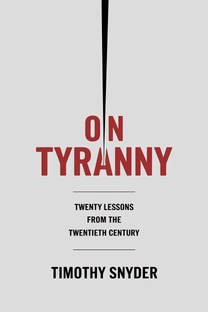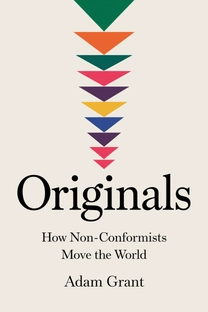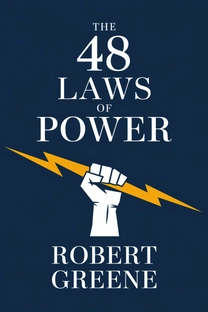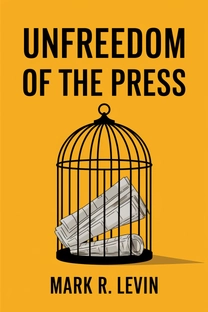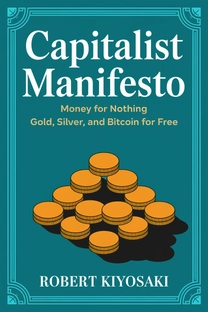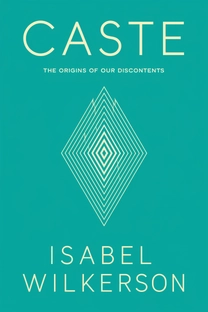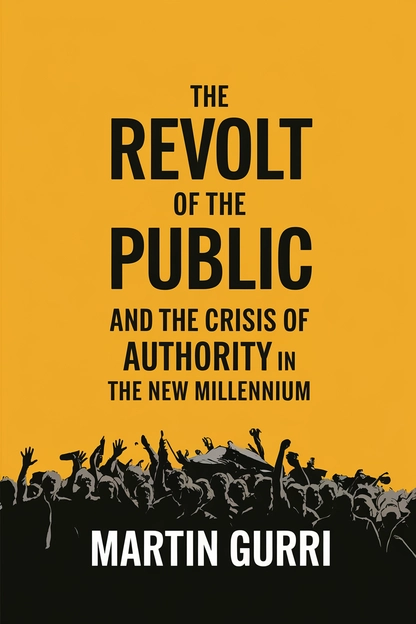
The Revolt of the Public and the Crisis of Authority in the New Millennium
by Martin Gurri
Brief overview
This book explores how a newly empowered public, armed with digital tools and widespread connectivity, is challenging traditional institutions and undermining the old order of authority. It shows how leaders everywhere are caught off-guard by fast-moving protests and viral outrage, and why distrust has become so widespread in politics. Readers will discover the forces behind this social upheaval and learn why today’s information environment is forever changed.
Introduction
A wave of sudden upheavals has swept the globe, catching governments and institutions by surprise. This movement doesn’t wear a single label or follow just one ideology. Instead, people across continents have discovered powerful ways to express their discontent through digital platforms.
This new dynamic is often driven by ordinary individuals armed with smartphones and social media. Protesters assemble in the streets at a moment’s notice, and outdated hierarchies scramble to respond. Traditional authority, once unquestioned, now finds itself in a defensive crouch.
What unites these events is a shared sense that something has permanently changed in how citizens relate to those in power. We have entered an era of restless information flows, where the public can rapidly shape opinion and challenge official narratives.
This introduction sets the stage for deeper exploration: how did the public become so powerful? Why are elites losing control? And what does this mean for the future of democracy and governance?
A Changing Information Landscape
In past generations, newspapers and television were gatekeepers of truth. They decided which stories mattered, and the public largely accepted their verdicts. Citizens could only respond passively as audiences in a one-way flow of information.
Today, communication is fragmented, relentless, and often chaotic. Blogs, social networks, and viral videos can capture global awareness overnight. People no longer wait for official news; they gather and spread stories themselves.
Such shifts have empowered everyone to comment and organize. The notion of mass media has been eclipsed by something that includes both professional outlets and everyday people. This new environment threatens old power structures that relied on scarcity of information.
In a connected world, hierarchies face sudden, unexpected forms of opposition. Leaders watch in frustration as their carefully managed narratives become overshadowed by amateurs and activists mobilizing digital resources.
What is The Revolt of the Public and the Crisis of Authority in the New Millennium about?
"The Revolt of the Public and the Crisis of Authority in the New Millennium," penned by analyst Martin Gurri, delves into the seismic shift in power dynamics fueled by the digital age. As the internet democratizes information, it hands unprecedented influence to the public, fundamentally altering relationships with authority. This book challenges readers to grasp the implications of this digital revolution, where spontaneity of social media can ignite movements and rapidly undermine traditional hierarchies. Gurri’s insights pave the way for understanding a world where public opinion can swiftly sway, and the once-unassailable bastions of authority grapple for relevance.
Through keen observation, the book explores the role of digital platforms in fostering rapid communication and amplifying dissent. Gurri elucidates how distrust in authority has burgeoned amidst this landscape, prompting readers to contemplate its formidable effect on political stability and governance structures. The work probes the fine line between reform-driven activism and outright nihilism, offering a panoramic view of contemporary democracy in flux. As Gurri illustrates, the capacity for spontaneous protest empowered by digital tools signals a new era of civil engagement, where established norms and authority face unrelenting scrutiny.
Review of The Revolt of the Public and the Crisis of Authority in the New Millennium
"The Revolt of the Public and the Crisis of Authority in the New Millennium" provides a thought-provoking exploration of the evolving interplay between public empowerment and institutional authority. One of the book's key strengths lies in its insightful analysis of how internet technology magnifies public influence, creating new channels for accountability and transparency. Through Martin Gurri's nuanced discussions, readers gain an appreciation for the unpredictable nature of modern protests and movements, facilitated by decentralized communication tools like social media.
Gurri presents practical applications and takeaways, drawing attention to the necessity for institutions to adapt or face obsolescence. By examining how digital networks enable rapid mobilization, the book opens pathways for understanding why today's governance structures often falter under new demands for immediacy and authenticity. With an accessible yet engaging style, Gurri bridges the gap between academic discourse and everyday comprehension, making the book pivotal for anyone scrutinizing the future of political authority.
Addressing a broad audience—from policymakers to journalists to engaged citizens—Gurri’s exploration is both timely and vital. The book engages readers with its professional yet conversational tone, coupled with a critical eye on contemporary governance challenges. For readers curious about the future intersection of democracy and digital activism, Gurri’s work is indispensable, culminating in a firm recommendation for anyone navigating the complexities of the modern age.
Who should read The Revolt of the Public and the Crisis of Authority in the New Millennium?
- Political Analysts: Those engaged in analyzing socio-political trends can find deep insights into the changing dynamics between public sentiment and institutional responses.
- Technology Enthusiasts: Readers with a keen interest in the digital age will appreciate detailed discussions on how digital platforms influence public opinion and activism.
- Policy Makers: Individuals shaping or influencing government policies will benefit from understanding the shifting tides of public empowerment and authority crisis.
- Sociology Students: Students will find the text a useful resource for examining cultural and social shifts caused by technological evolution.
- Media Professionals: Journalists and content creators can gain valuable perspectives on the role of media in shaping and responding to public discourse.
About the author
Book summaries like The Revolt of the Public and the Crisis of Authority in the New Millennium
Why readers love Mindleap
10-Minute Book Insights
Get the core ideas from the world's best books in just 10 minutes of reading or listening.
Curated For You
Discover your next favorite book with personalized recommendations based on your interests.
AI Book ExpertNew
Chat with our AI to help find the best book for you and your goals.
Reviews of MindLeap
Love how I can get the key ideas from books in just 15 minutes! Perfect for my busy schedule and helps me decide which books to read in full.
Alex R.
The summaries are incredibly well-written and the audio feature is perfect for my commute. Such a time-saver!
Jessica M.
Great app for personal growth. The insights are clear and actionable, and I love how they capture the essence of each book.
Chris P.
The app is beautifully designed and the summaries are top-notch. Definitely worth every penny!
Sarah K.


